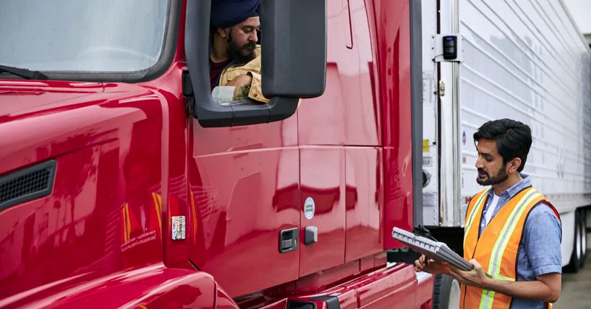BluJay lets Uber Freight build resilient supply chain
- May 5, 2020
- imc

Uber Freight is helping businesses build resilient global supply chains with freight technology from Michigan-based software and services company BluJay.
In the face of global change and volatile demand, real-time insight into market prices has become essential. Supply chain operators must be able to see current market conditions to make decisions quickly and adapt accordingly. Now, by integrating directly with BluJay’s Transportation Management via API, shippers can instantly access Uber Freight’s real-time pricing and tendering capabilities, with reliable capacity.
“It’s become more important than ever for supply chains to be flexible and dynamic to keep pace with a constantly changing market,” said Laurent Hautefeuille, head of business development at Uber Freight. “Together with BluJay, we’re making our tech-forward approach to freight available to more businesses looking for increased foresight and control of their operations.”
Uber Freight integrates directly with the BluJay platform to power instant quotes, booking and carrier matching. The integration allows businesses that use BluJay’s Transportation Management application in North America and, soon, Europe to tap into Uber Freight’s pricing insights and network of more than 50,000 carriers. The API-based integration can be turned on within hours for shippers, allowing for fast access to end-to-end supply chain visibility.
“At BluJay, we aim to help our customers achieve operational excellence by providing the tools they need to make immediate, informed business decisions,” said Bryant Smith, global product manager at BluJay. “With Uber Freight’s transparent marketplace, our TMS customers can easily access a new level of capacity with real-time visibility so they can plan for the weeks ahead and account for last-minute market shifts. This integration and the responsiveness it allows shippers is right now for customers facing today’s challenges, but also during the more traditional market fluctuation.”
Among the first customers to benefit from this partnership are food manufacturers and packaging companies experiencing surges in volume as they provide essential products during the pandemic.
“For many BluJay customers, right now it’s more crucial than ever that their products make it to grocery shelves on time,” said Bill Madden, vice president at BluJay. “We have been successful in our ability to rapidly and accurately execute on behalf of our customers, and have leveraged solid support through BluJay’s Uber Freight API integration. For example, we were able to stand up the platform and push the first load tender all inside of a single business day for one of our food manufacturer shippers. We’re seeing early adoption across both our managed customers and our TMS shippers, all with the same goal of making the right decisions quickly to keep freight moving through the supply chain.”
More than $18bn in freight annually moves through BluJay’s Transportation Management platform, with approximately $3bn managed on behalf of shippers by BluJay’s MTS team.
The partnership comes within a growth year for Uber Freight. To date, the company announced joint work with other global cloud service providers and expanded to serve thousands of shippers around the world with offices in San Francisco, Chicago and Amsterdam.
BluJay helps companies around the world in logistics and trade compliance. Through a blend of data, networks and applications, its platform powers the frictionless supply chain for thousands of the world’s manufacturers, retailers, distributors, freight forwarders, customs brokers, carriers and logistics service providers.
Uber Freight is a logistics platform for delivering reliability, flexibility and transparency for shippers and carriers. Since launching in 2017, it has built a digitally enabled carrier networks and transformed legacy practices around pricing and booking freight to reduce inefficiencies and increase opportunities for business growth and industry collaboration. Today, the business counts over 50,000 carriers in its network and thousands of shippers as customers, from small businesses to Fortune 500 companies, including AB InBev, Nestle, LG and Land O’Lakes.





